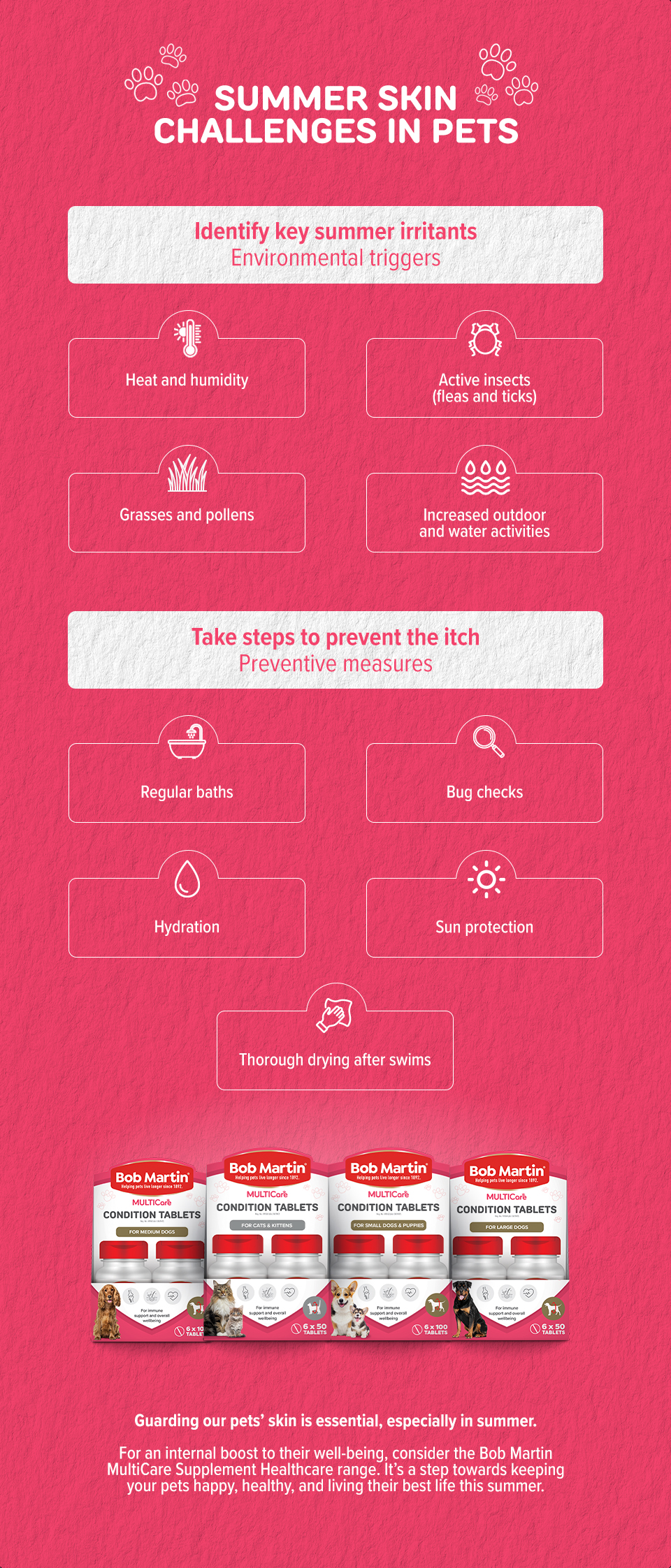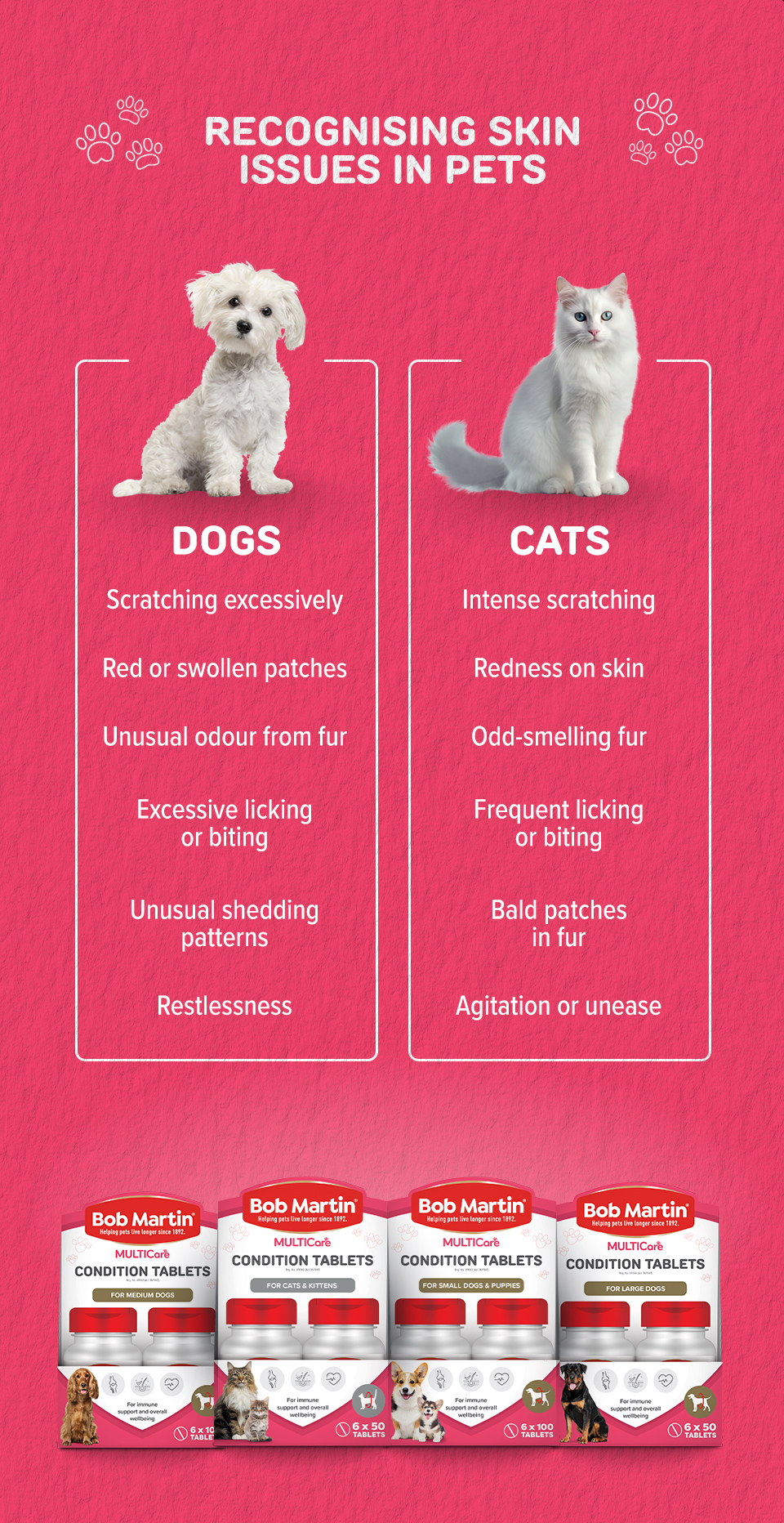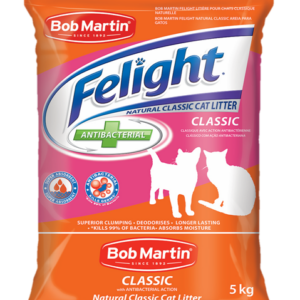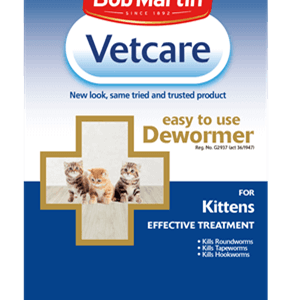Understanding skin irritations, infections, and allergic reactions in pets
South Africa’s summer is here, promising days filled with sun and warmth. But, as we embrace the sunny season, our pets, being an integral part of the family, often encounter skin challenges that can be concerning for any pet owner.
Let’s understand these issues better and discover ways to ensure our pets relish the summer, too.
Why do pets face skin problems in summer?
Just as we struggle with sunburn or rashes due to the heat, our pets can experience skin irritations, infections, and allergies. The summer season, while delightful, has unique elements that can be tough on our pets’ skin. Factors such as heat, bugs, and blooming plants contribute to skin challenges for our furry friends:
- Heat and humidity: High temperatures lead to sweating in pets, which, if not addressed, can escalate to skin infections.
- Insects: With the summer buzz, fleas, ticks, and other insects become more active. Their bites can lead to allergic reactions in some pets.
- Grasses and pollens: The flourishing flora means more playtime outdoors, but some grasses and pollens can be irritants.
- Increased outdoor activities: The allure of summer means more park visits, beach trips, and outdoor play. While these are fun, they expose our pets to a variety of allergens in the environment.
- Water activities: While swimming is refreshing, if our pets’ fur remains damp for prolonged periods, it can become a breeding ground for bacteria, leading to potential skin issues.
- New environments: Travelling or even visiting new parks can expose pets to allergens or irritants they aren’t accustomed to, leading to possible reactions.

Signs your pet might have a skin issue
Our pets have unique ways of communicating discomfort. If they’re feeling itchy or irritable, their behaviour and physical actions can give us clues. Here’s what to watch out for:
- Scratching: Excessive scratching can be a telltale sign of irritation or allergies.
- Redness or swelling: Regularly inspect their skin for any unusual red spots or swollen areas.
- Odour: An unusual smell can indicate an underlying skin infection.
- Licking or biting: Excessive licking or biting in specific areas can indicate localised issues or discomfort.
- Changes in fur: Unusual shedding, patches of hair loss, or even the appearance of dandruff can be red flags.
- Restlessness: Continuous discomfort can make it hard for pets to find a restful position, leading to apparent restlessness or agitation.
Keeping skin problems at bay
Taking proactive steps can prevent many summer-related skin issues. With a mix of regular care and some seasonal adjustments, you can keep your pet comfortable. Here are a few tips:
- Regular baths: Using a gentle pet shampoo can help cleanse their coat, removing dust and potential allergens.
- Check for bugs: It’s crucial to inspect your pet for fleas and ticks periodically. Proactive treatments can keep these pests at bay.
- Stay dry: Ensure your pet is dried thoroughly after swimming or bathing, focusing especially on skin folds.
- Hydration: With the summer heat, hydration becomes paramount. Fresh water aids in keeping their skin less prone to dryness and irritations.
- Protective gear: Pet-friendly sunscreens or protective outfits can shield them during extended outdoor excursions.
- Regular vet check-ups: Regular visits to the vet can provide early detection and prevention, ensuring minor issues don’t escalate.

When to see a vet?
Skin issues can sometimes be stubborn or severe. If home remedies aren’t helping, it’s always a good idea to seek expert advice. A veterinarian can provide specific treatments and recommendations.
Helping your pet from the inside out
While topical treatments are beneficial, ensuring your pet is healthy from the inside is equally crucial. For an internal boost to your pet’s well-being, consider the Bob Martin Multicare Supplement Healthcare range. It’s a step towards keeping your pet happy, healthy, and living their best life this summer.
The sunny season is all about enjoyment and relaxation. With a little care and vigilance, we can make sure our pets get the most out of summer.







